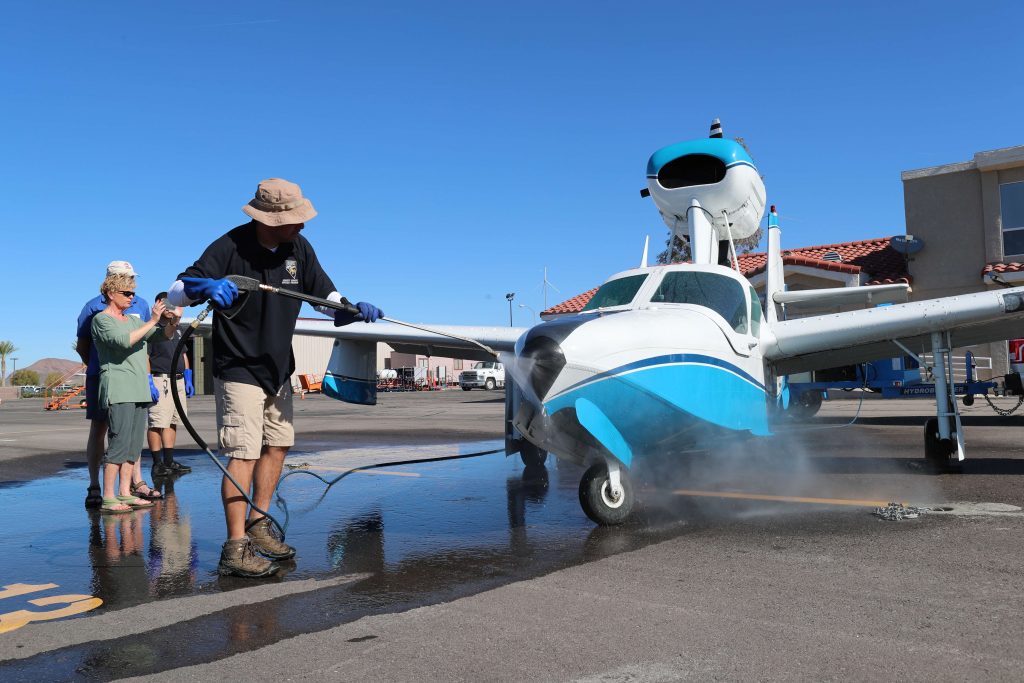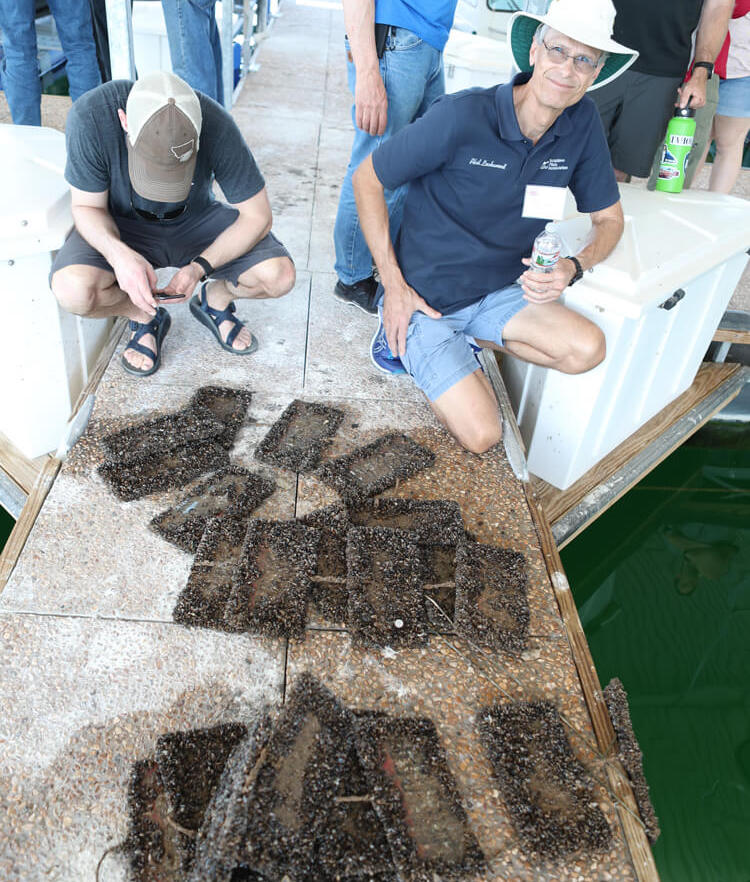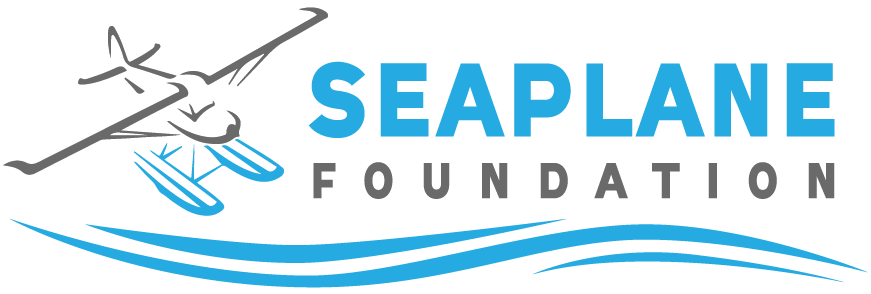Invasive Species Education
Engagement, education & interaction
Seaplane pilots enjoy the outdoors and appreciate the critical importance of being good stewards of the environment. As part of that responsibility we must ensure that waterway managers and regulators understand our commitment.
The single most important issue seaplane pilots face regarding continued access to public waterways is mitigating the spread of invasive aquatic species. Engagement, education and interaction with resource managers is critical to maintaining seaplane access to waterways. The Seaplane Pilots Association and the Seaplane Foundation are developing tools for our members to access the best possible information regarding federal, state and local requirements for invasive species mitigation procedures.
Our commitment is to become the facilitator of communication among regulators, resource managers, manufacturers and our pilot community to ensure that we are all working together to develop and implement best practices for protecting the health and quality of our nation’s waterways.
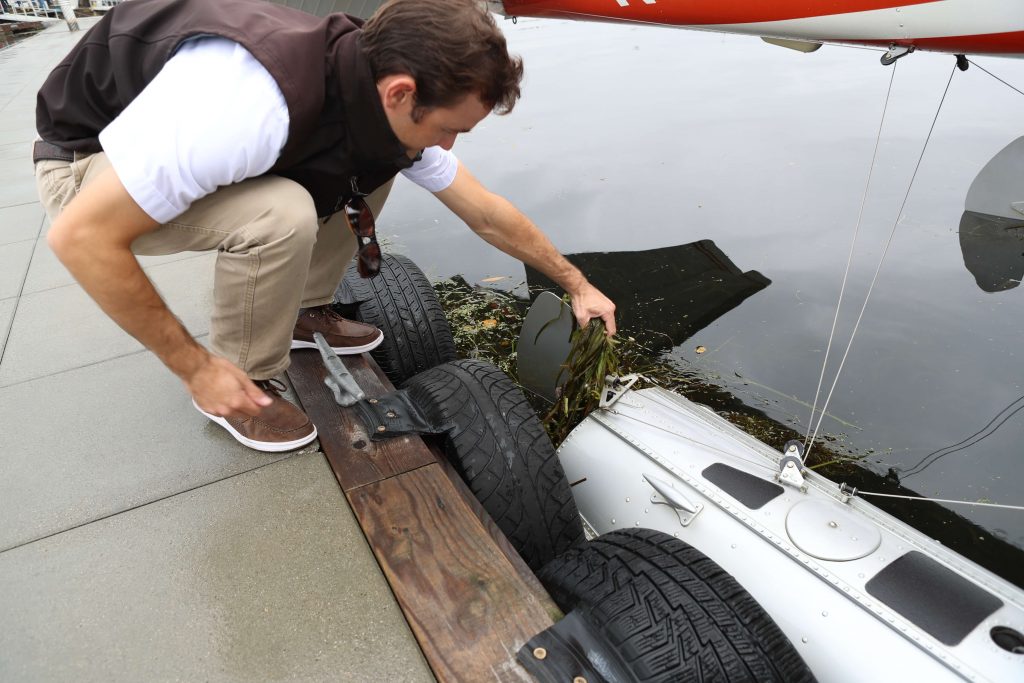
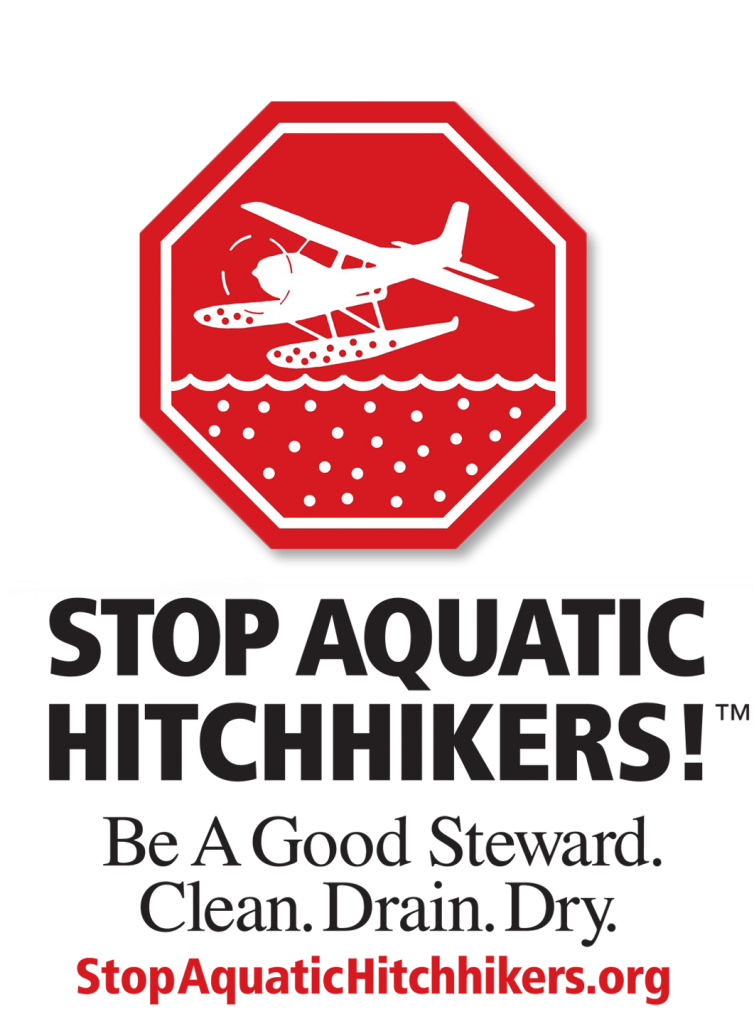
Working with our partners at U.S. Fish & Wildlife we were able to come up with a universal logo to “Stop Aquatic Hitchhikers.
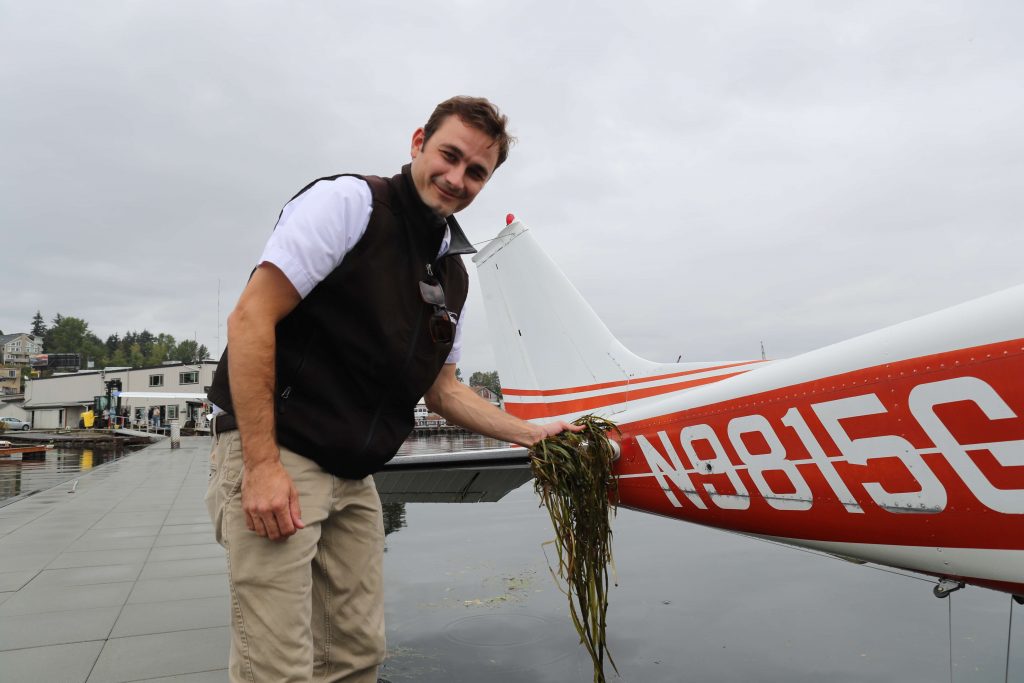
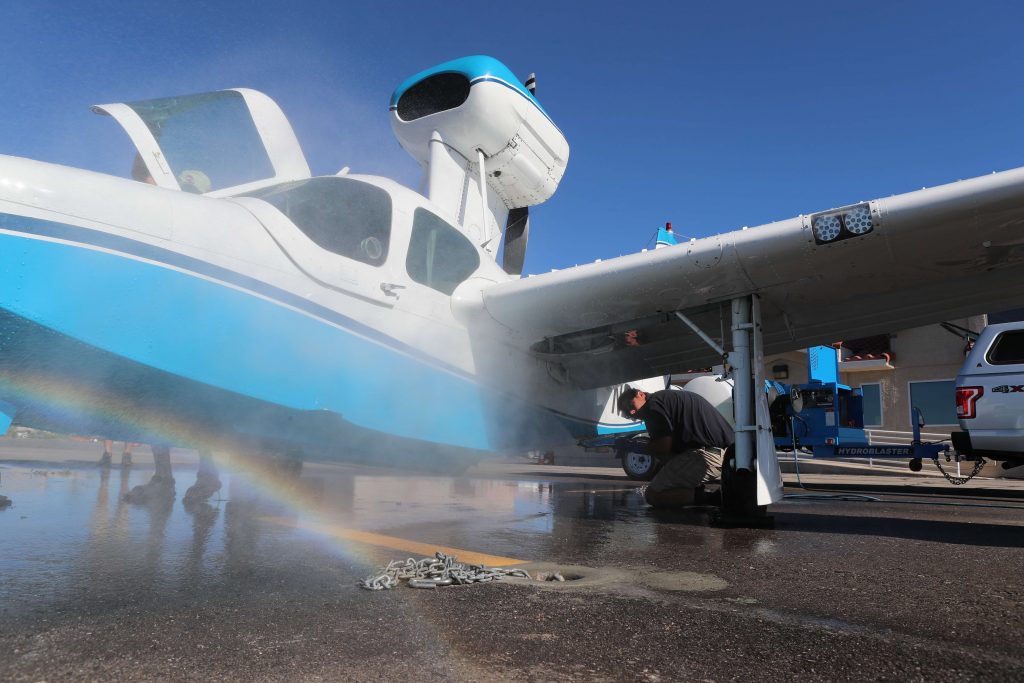
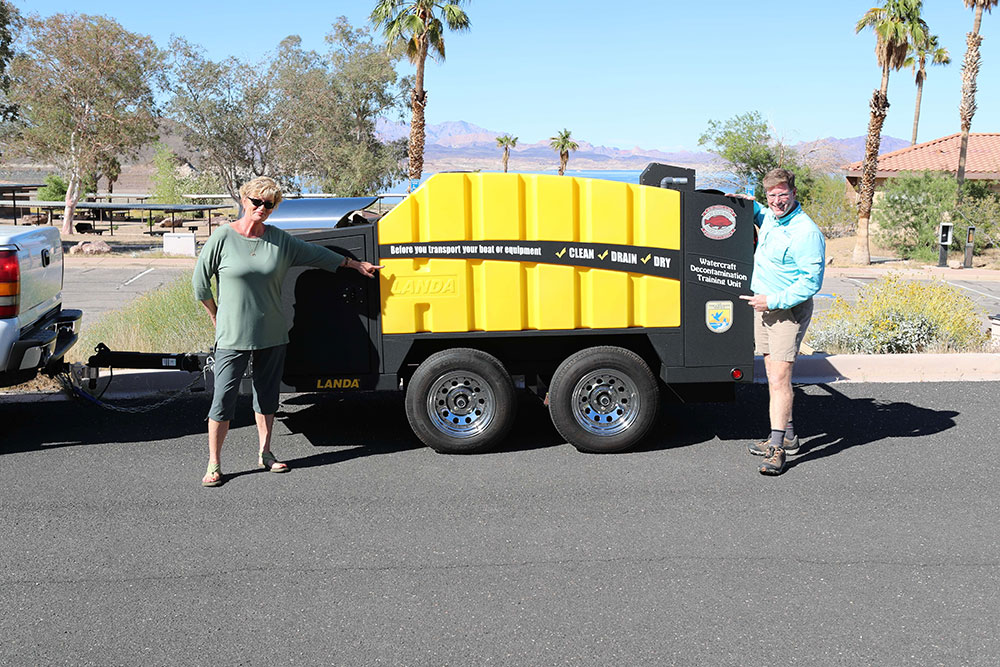
Dee Davis from Pacific State Marine Fisheries Commission and Seaplane Foundation Executive Director Steve McCaughey are committed partners in stopping the spread of Aquatic Invasive Species

